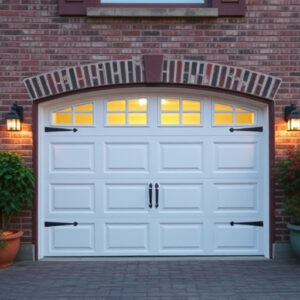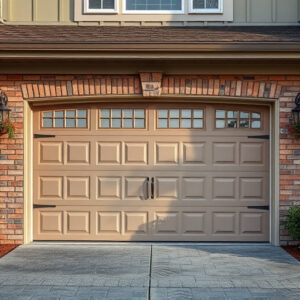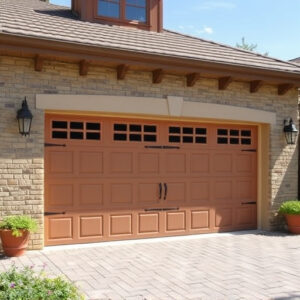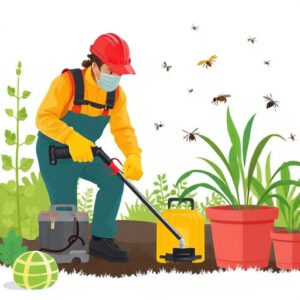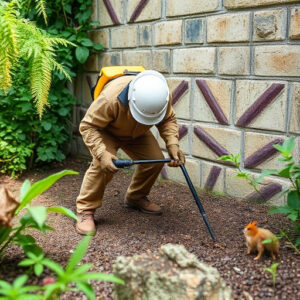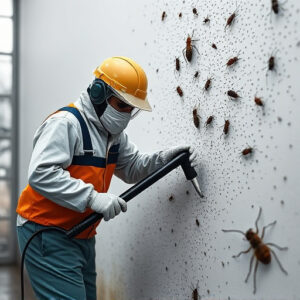Silencing Your Garage: Roller Lubrication for Noisy Door Fix
Garage door noises signal potential problems requiring attention, mainly due to worn or damaged part…….
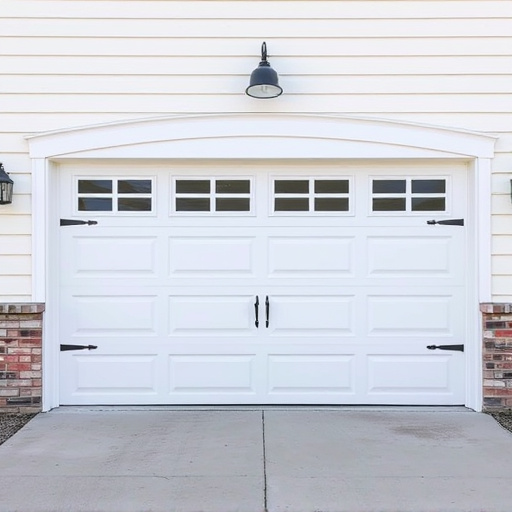
Garage door noises signal potential problems requiring attention, mainly due to worn or damaged parts like rollers, springs, and hinges. Regular lubrication of moving parts, especially rollers, reduces friction, diminishes wear, and minimizes noise levels. Prompt action prevents severe, costly Garage Door Repair issues. Roller lubrication improves door quietness and performance, addressing disruptive noises and prolonging mechanisms' life. This simple yet powerful maintenance step is crucial for homeowners, particularly in close-knit communities, to maintain a serene living space. To lubricate rollers safely, follow steps: ensure the door is closed, clean debris, use water-based lubricant, apply to each axle, and wipe excess lubricant. Regular maintenance, including lubrication and checks for issues, prevents major repairs, saving time and money.
Roller lubrication is a simple yet powerful tool in the arsenal of any garage door owner. Understanding and addressing garage door noises, caused by worn rollers or other components, can prevent costly repairs. This article delves into the science behind garage door noise, highlighting how roller lubrication significantly reduces clanging and squeaking. We provide a comprehensive guide on lubricating garage door rollers, maintenance tips, and benefits of regular care to ensure smooth, quiet operations, ultimately saving you from expensive garage door repair bills.
- Understanding Garage Door Noises and Their Causes
- The Role of Roller Lubrication in Reducing Noise
- Benefits of Regular Roller Lubrication for Your Door
- Step-by-Step Guide to Lubricating Garage Door Rollers
- Maintenance Tips for Longevity and Quiet Operation
Understanding Garage Door Noises and Their Causes
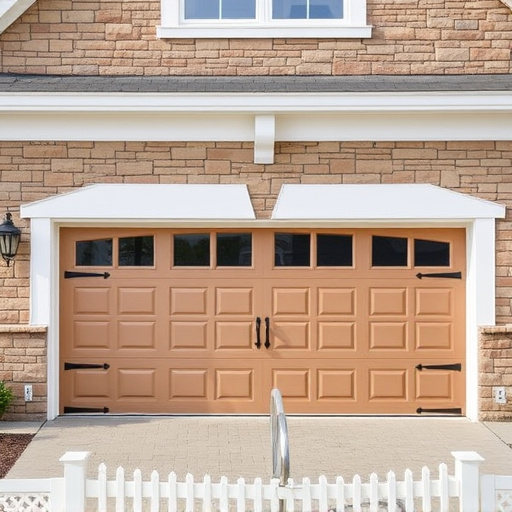
Garage door noises can range from subtle creaks to loud, jarring sounds, often indicating underlying issues that require attention. Understanding these noises is the first step in effective garage door repair. Common causes include worn-out or damaged components such as rollers, springs, and hinges. Over time, these parts can become loose, misaligned, or deteriorate due to friction and exposure to varying weather conditions, leading to irregular operations and noticeable vibrations.
Regular lubrication of moving parts, particularly rollers, plays a crucial role in minimizing noise levels and prolonging the door’s lifespan. Roller lubrication reduces friction between the rollers and the track, thereby decreasing wear and tear. By addressing these noises promptly, homeowners can avoid more complex (and costly) garage door repair issues down the line.
The Role of Roller Lubrication in Reducing Noise
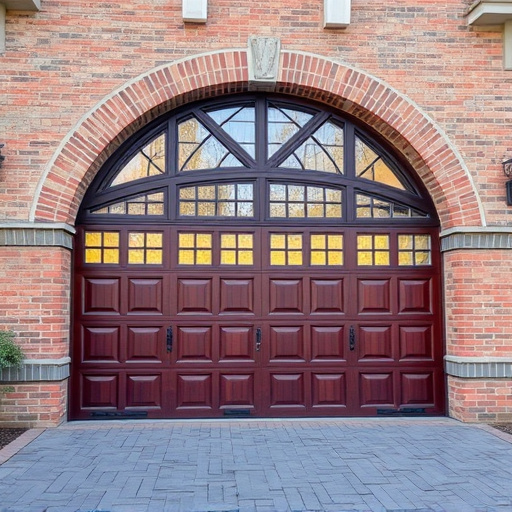
Roller lubrication plays a pivotal role in mitigating the noise associated with garage door operations, offering a simple yet effective solution for homeowners seeking to enhance their space’s tranquility. By applying lubricants to the rollers, friction is reduced, allowing the door to glide smoothly along its tracks. This minimal intervention can drastically cut down on the squeaking, grinding, or clattering sounds often heard in garages, transforming the ambient noise from a potential nuisance to a peaceful backdrop.
In the realm of garage door repair, roller lubrication stands out as a preventive measure that not only tackles noise issues but also contributes to the overall longevity of the door’s mechanism. Regular lubrication can prevent metal parts from wearing down prematurely, ensuring the door continues to function efficiently and quietly for years to come. This proactive approach is particularly beneficial for those living in close-knit neighborhoods or who value a serene environment within their homes.
Benefits of Regular Roller Lubrication for Your Door
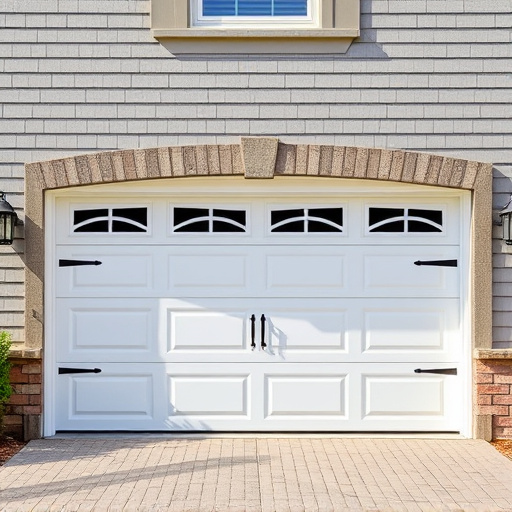
Regular roller lubrication is an essential aspect of garage door maintenance that many homeowners often overlook. By keeping the rollers well-lubricated, you can significantly reduce the noise levels associated with your door’s operation. Over time, metal parts in the garage door mechanism can become dry and rusty, leading to squeaking, grinding, or clicking sounds as the door opens and closes. Applying lubrication regularly helps minimize these unwanted noises, creating a smoother and quieter experience for both you and your family.
Additionally, proper roller lubrication ensures your garage door operates smoothly and efficiently. Lubrication reduces friction between the rollers and the tracks, allowing the door to glide effortlessly. This can extend the life of your door’s components by preventing unnecessary wear and tear. Regular maintenance in the form of lubrication is a simple yet powerful tool for preventing costly garage door repairs, making it an integral part of any homeowner’s upkeep routine.
Step-by-Step Guide to Lubricating Garage Door Rollers
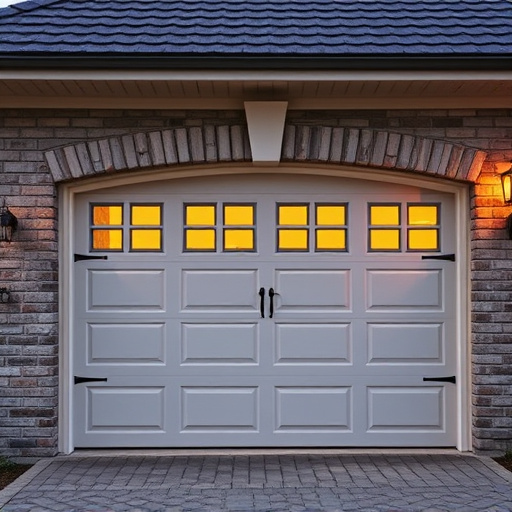
To lubricate your garage door rollers, follow this straightforward step-by-step guide:
1. Safety First: Before beginning, ensure your garage door is closed and all power sources (including the opener) are disconnected for safety. Put on protective gloves to avoid grease stains or injuries.
2. Identify the Rollers: Locate the roller bearings, typically found near the bottom of each panel. These are the components that need lubrication.
3. Prepare the Lubricant: Choose a high-quality, water-based lubricant designed specifically for garage door rollers. Avoid oil-based lubricants as they can attract dirt and debris.
4. Lubricate Each Roller: Remove any debris from around the roller axles using a clean cloth or brush. Apply a small amount of lubricant to each axle, ensuring complete coverage.
5. Rotate and Wipe Excess: Rotate the rollers gently to distribute the lubricant evenly. Use a clean rag to wipe off any excess lubricant, preventing it from attracting dust or causing messiness.
Maintenance Tips for Longevity and Quiet Operation
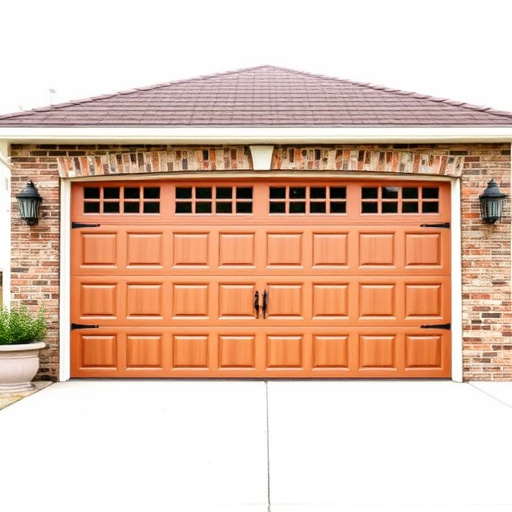
Regular maintenance is key to ensuring your garage door operates smoothly and silently for years to come. One of the simplest yet most effective ways to achieve this is through proper lubrication. Applying a suitable lubricant to the roller hinges can significantly reduce friction, allowing the door to glide open and close with ease. This simple step can cut down on excessive noise and strain on the mechanism.
Remember that regular garage door repair should also involve checking for other potential issues like worn-out springs or damaged tracks. Addressing these problems promptly will further contribute to a longer-lasting, quieter door system. Keep in mind that consistent lubrication and occasional maintenance checks are cost-effective ways to prevent major repairs down the line, saving you time and money.
In conclusion, addressing garage door noises through regular roller lubrication is a simple yet effective solution that falls under the broader scope of garage door repair. By minimizing friction and wear, lubricated rollers ensure smoother operations, quieter performance, and extended door lifespan. Incorporating this maintenance practice into your routine can prevent costly repairs and significantly enhance the comfort and safety of your home.
